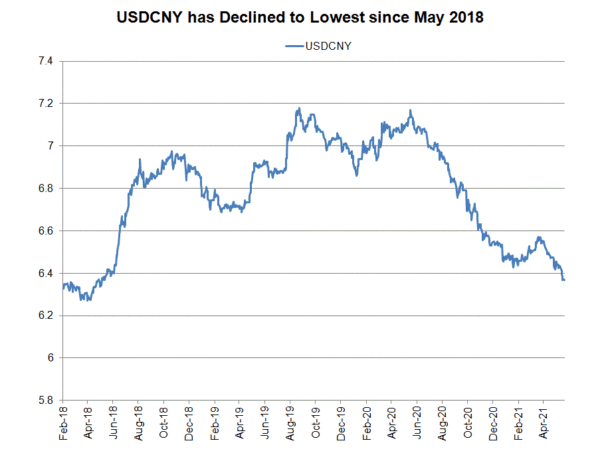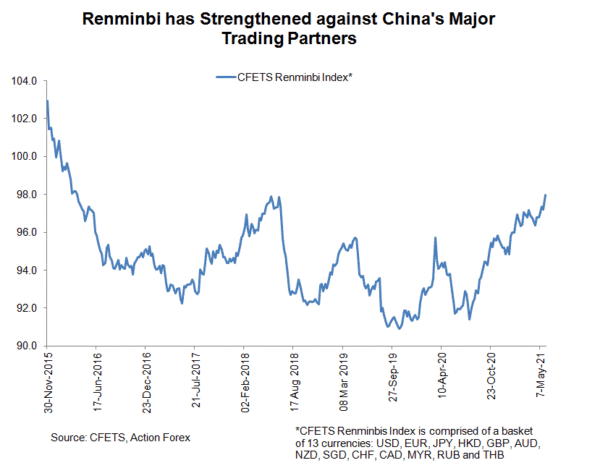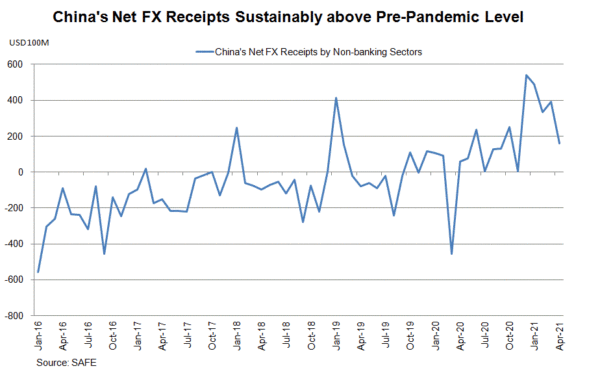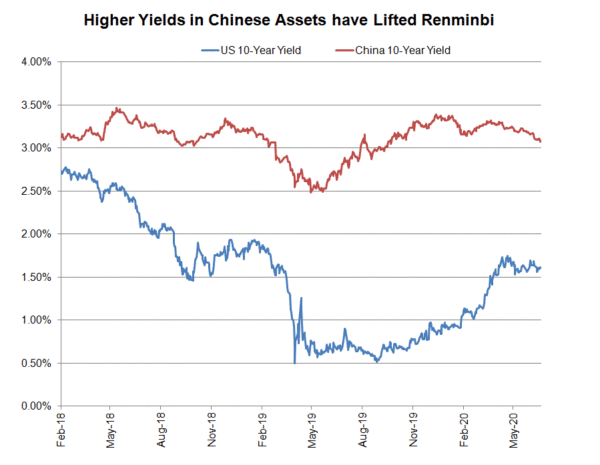People’s Bank of China (PBOC) announced to increase of FX deposit reserve requirement ratio (RRR) to 7% from the current 5%, effective June 15. The move, together with recent comments from official, suggests that the central bank is getting uncomfortable with recent appreciation in renminbi (RMB, CNY). We believe the move marks a step backward of renminbi internationalization.
Following a pullback in February and March, CNY has resumed its rally against USD in April. Settling at a 3-year low of 6.37 on May 31, USDCNY has dropped -2.55% in the first 5 months of the year. This is after a -5.84% decline a year ago. The CFETS Index has risen +1.1% and +3.3%, respectively, in the latest round of rally and in the first 5 months. This suggests that while renminbi’s appreciation is broad-based, it’s mainly against the greenback. Over the past weeks, Chinese officials have signaled discomfort over recent CNY strength. On May 21, Vice Premier Liu He noted that the country’s currency would “maintain the basic stability of the RMB exchange rate at a reasonable and equilibrium level”. His comments were followed by Liu Guoqiang, vice-governor of the PBOC, who reiterated Liu’s comments 2 days later and added that the central bank would focus on guiding expectations.


The move to increase of FX deposit reserve requirement ratio marks a concrete action to temper further strength in the currency. The outstanding onshore FX deposits amounted to around US$660B as of April. The 2-ppt increase in RRR would withdraw about US$13B of FX liquidity in the market. Lower FX liquidity, relative to that of CNY, would alleviate appreciation pressures of the latter.
Relatively higher yields offered by Chinese assets and inflow of international trade proceeds are the key reasons for strong FX inflow. The strong demand for converting FX into renminbi is thus lifting CNY. Speculations of renminbi internationalization have added fuel to the fire. Zhou Chengjun, director of the People’s Bank of China’s finance research institute, has recently been cited as suggesting that renminbi would have to be determined by market forces. As Zhou spoke at a forum in April, “under the condition of renminbi internationalization, we won’t be able to control the exchange rate, and China’s central bank has to let go of exchange-rate goals in the end”. However, other officials immediately attempted to water down the speculations (such as comments from Liu He and Liu Guoqiang mentioned above).


Unlike other market participants, we do not interpret Zhou’s comments as a signal of further renminbi internationalization. Indeed, raising FX deposit RRR is the latest sign that the authority would intervene so as to maintain the currency within its preferred range. Moreover, the authority would not prefer to see renminbi to appreciate too much as this would negatively affect its exports.
